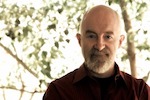- You are here:
- Home »
- Blog »
- Fitness After 40 »
- Save the Date…for a Lot Later
Save the Date…for a Lot Later
We’ve been to a couple of weddings and anniversaries over the past few years and with each one, we received a “Save the Date” card.
The card informed us of when and where the wedding would take place – a courtesy since everyone’s lives are so full that adding another thing to do takes months of advance notice.
As you get older though, there’s a date that I’m not so interested in saving much as I am in pushing it out.
It’s a date with Dependence.
No one wants to think or talk about Dependence much less meet Dependence. I imagine I might even have some people unsubscribe from my email list or even send me an angry note because I’ve raised the subject.
But the truth is, there will be a time when the demands of everyday activities exceed your ability to meet them.
Life will overwhelm your physiologic reserve.
You’ll be less mobile, less able to fend for yourself, less independent. Maybe that’s because of an illness or disease but in many cases, it’s from “deferred maintenance”.
It creeps up on you.
We all have a certain amount of physiologic reserve. We’re born with billions of brain cells, lose most of them yet experience little if any cognitive decline.
And it’s our physiologic reserve that allows us to ignore certain parts of ourselves – our diet, movement, exercise among others – and still continue to function reasonably well.
But our muscles and joints might work well for years and years until, well, one day they don’t. You can tap into the reserve for only so long without replenishing it before you notice some kind of physical problem or ailment.
So, in other words, you don’t have to be fit to be alive…up to a point.
You might have heard or know that research shows we lose 3-5% strength each year after the age of 30. [source]
Of course, we don’t notice much change in day to day life until the loss is much higher unless we sustain an injury or deal with a disease or surgery.
This physiologic reserve reminds me of a bank account.
In the glory days of youth, your “bank account” is flush with tons of cash. You can sleep on the floor, sit crossed leg on the ground, maybe even fall off a ladder and get up, walk away with no problems.
Each one of those activities burns up some cash – it’s how you heal. Energy is the cash of the body. You use energy to heal, recover.
Now, at say the age of 60, a fall off a six foot ladder will likely land you in the hospital. You don’t have THAT much cash anymore. Well, maybe you do if you’ve been disciplined about your diet, exercise with intensity and consistency, get enough sleep, and manage stress over your lifetime.
See, all of those things – diet, exercise, stress management – act like “deposits”. You exercise not to look good but to have a lot of “body cash”. Your appearance is a fringe benefit of your lifestyle.
There’s an expression in the sales world – “People buy aspirin, not vitamins”. It’s unfortunate but true. When pain rises to a level which can no longer be ignored, change will emerge. But not so much before.
The good news is your body and mind are amazingly malleable, plastic. You can make massive improvements in your body’s cash account by being mindful of what you eat and drink, the type and frequency of exercise or training, how you deal with the stressors of life and getting sufficient restorative sleep.
Do these things consistently and you’ll push the Dependence Day down the road.
Thanks for reading.

If you like this article, why not share it with a friend? If you’re interested in coaching services, please contact my colleague Laurie Kertz Kelly for a free, 20-minute Strategy Session by, clicking here. To get my Secret Weapon to fight knee, hip & back pain and stiffness, subscribe for free today.

Doug Kelsey has been a physical therapist and human movement expert since 1981. He is formerly Associate Professor and Assistant Dean for Clinical Affairs at the University of Oklahoma Health Sciences Center and the author of several books. He has conducted over 250 educational seminars for therapists, trainers, physicians, and the public and has presented lectures at national and international scientific and professional conferences. His professional CV is here.
